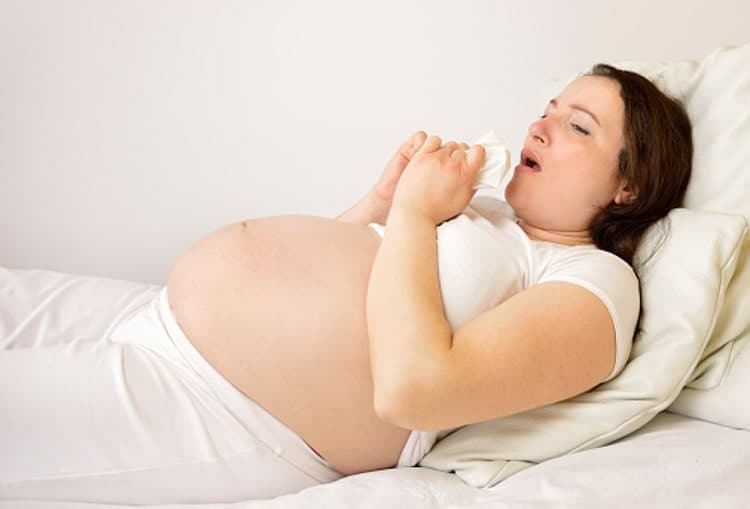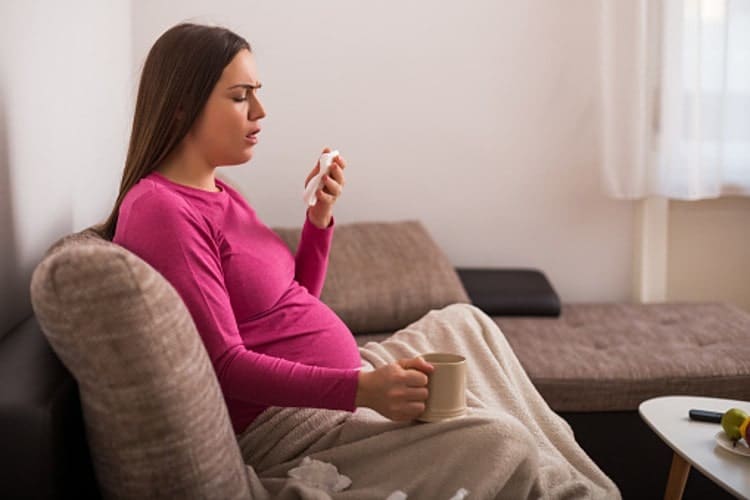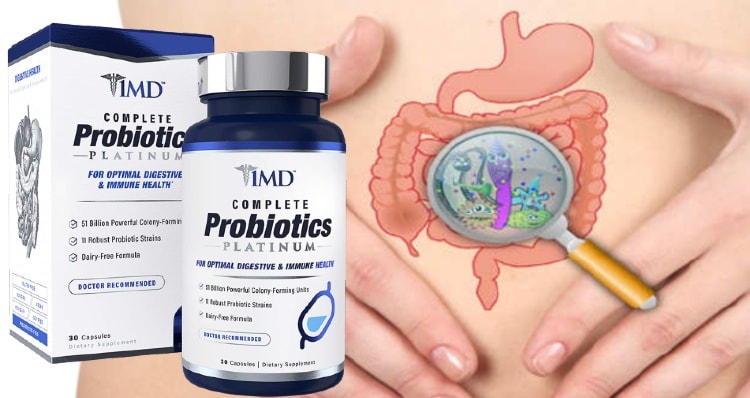The Best Fluffy Pancakes recipe you will fall in love with. Full of tips and tricks to help you make the best pancakes.

Pregnancy is a time of joy and excitement for many women, but it can also come with a host of unpleasant symptoms. One of the most common pregnancy-related ailments is Excessive Coughing During Pregnancy, especially during cold and flu season. While coughing might seem like an annoyance at first glance, it can be an indicator of more serious problems in pregnant women.
In this blog post, we will discuss the impact Excessive Coughing During Pregnancy can have on babies during pregnancy, possible complications related to this symptom, and home remedies that may reduce the severity of your cough if you’re experiencing one while pregnant.

As a pregnant mom, excessive coughing can be incredibly worrisome. Not only are you dealing with the physical discomfort that accompanies it, but you’re also worried about how it could affect your growing baby and whether or not there might be any further health complications.
Thankfully, understanding the causes of a persistent cough during pregnancy and learning some helpful home remedies can help you to find relief – both physically and mentally – so let’s take a closer look at this issue to ensure that both mama and baby remain as healthy as possible
Why Am I Coughing So Much During Pregnancy – Excessive Coughing During Pregnancy?
Allergies can be triggered by dust, pollen, mold, and pet dander, while asthma can be triggered by exercise, cold air, and stress. Other respiratory infections, such as bronchitis, can also cause excessive coughing during pregnancy.
It is important for pregnant women to be aware of the signs and symptoms of excessive coughing, such as wheezing, chest tightness, and shortness of breath. If you experience any of these symptoms, it is important to speak to your doctor or midwife as soon as possible. Your doctor may recommend medication to help reduce your coughing, or may refer you to a specialist for further testing and treatment.
In addition to medications, there are a number of lifestyle changes you can make to help reduce your coughing. These include avoiding triggers such as dust, pollen, and pet dander, wearing a mask when outdoors, and avoiding smoke and other air pollutants. You should also make sure to drink plenty of fluids and get plenty of rest.
Also Read: Leaking Urine After Urination Female – Urinary Incontinence Bladder
Excessive coughing during pregnancy can be a sign of an underlying medical condition, so it is important to speak to your doctor if you experience any symptoms. By making lifestyle changes, healthy diet rich in vitamins and minerals as well as following your doctor’s instructions, you can help reduce your coughing and ensure a safe and healthy pregnancy.
Can Excessive Coughing During Pregnancy Hurt the Baby?

However, if the coughing is due to an underlying medical condition, such as asthma or bronchitis, it can be harmful to both the mother and the baby. It is important to always check with your doctor if you are experiencing cold or cough during pregnancy or any symptoms of excessive coughing.
You can reach out to a specialist such Gynaecology or gynecology (see spelling differences) is the area of medicine that involves the treatment of women’s diseases, especially those of the reproductive organs.
Will dry cough during pregnancy affect the baby inside?
What is the list of top Home remedies for cough during pregnancy?
What is cough with phlegm during pregnancy
Coughing with phlegm is a common symptom of various respiratory conditions, such as allergies, asthma, and bronchitis.
During pregnancy, some hormanal changes such increased levels of the hormone progesterone can cause the airways to relax and the mucus membrane to swell, leading to increased coughing and phlegm production.
It is important to consult a doctor or midwife if you are experiencing any symptoms of excessive coughing, symptoms of a dry cough or phlegm cough during pregnancy may help stop any form of dry cough in pregnancy.
Also Read: Lifetime Keto ACV and Gummies Top Rated Fat-Burning Gummy Bear
What is Best treatment for cough with phlegm during pregnancy

How Do I Prevent Getting a Cough or Cold During Pregnancy?
The best way to prevent getting a cough or cold during pregnancy is to take good care of your health. Make sure you eat a balanced diet, stay hydrated, get plenty of rest, and exercise regularly, healthy diet. Also, make sure to wash your hands often with soap and water and avoid contact with people who are sick.
Additionally, make sure to get a flu vaccine shot each year as well as the pertussis (whooping cough) vaccine if recommended by your doctor.
Avoiding exposure to smoke is also important to help reduce the risk of developing a respiratory infection. Lastly, talk to your doctor about any supplements or vitamins that may be beneficial in helping you stay healthy during pregnancy.
What is the best treatment for pregnant with a cough that won’t go away?
If you are experiencing a cough that won’t go away, it is important to speak to your doctor or midwife as soon as possible and if the cough is accompanied with cold. Your doctor may recommend medications to help reduce your coughing, or may refer you to a specialist for further testing and treatment.
In addition to medications, there are a number of lifestyle changes you can make to help reduce your coughing. These include avoiding triggers such as dust, pollen, and pet dander, wearing a mask when outdoors, and avoiding smoke and other air pollutants. You should also make sure to drink plenty of fluids and get plenty of rest.
List steps to cure pregnant with a cough that won’t go away
• Call your doctor or midwife as soon as possible to discuss medications that can help reduce your coughing.
• Avoid triggers such as dust, pollen, and pet dander.
• Wear a mask when outdoors.
• Avoid smoke and other air pollutants.
• Drink plenty of fluids and get plenty of rest.
• Take steamy showers or baths to help loosen mucus in the airways.
• Use a humidifier to add moisture to the air.
• Eat foods rich in Vitamin C, such as citrus fruits and garlic.
• Take over-the-counter medications, such as guaifenesin, to help thin mucus.
• Do light exercise, such as walking, to help loosen mucus.
• Use a neti pot to flush out the nasal passages.
Does dry cough during pregnancy third trimester hurt the baby? How can it be manage?
A dry cough during the third trimester is usually not a cause for concern and will not directly affect the baby inside. However, if the coughing is due to an underlying medical condition, such as allergies or asthma, it can have an effect on the baby, so you should find out the cause of cough that make persist.
In order to manage a dry cough during the third trimester, it is important to avoid triggers such as dust, pollen, and pet dander, wear a mask when outdoors, and avoid smoke and other air pollutants. You should also make sure to drink plenty of fluids and get plenty of rest.
This also applies to first trimester and secon trimester is usually not a cause for concern and will not directly affect the baby inside.
Your doctor may recommend medications to help reduce your coughing, or may refer you to a specialist for further testing and treatment.

What Is the Difference Between a Dry and Wet Cough?
A dry cough is an irritating, non-productive cough that does not produce any phlegm or mucus. It can be caused by allergies, dust, viral infections and even some medications.
Dry coughing is often worse at night and can cause a sore throat, chest pain and difficulty sleeping. On the other hand, a wet cough produces mucus or phlegm and is typically a sign of infection or allergies. This type of cough can be accompanied by fever and body aches, making it important to see a doctor if you experience these symptoms along with your wet cough.
Wet coughing often indicates that your immune system is fighting something off, so you might need antibiotics to get rid of the infection.
In summary, a dry cough is typically less severe but more annoying whereas a wet cough usually requires medical attention as it could indicate a more serious infection.
What Complications Can Cough During Pregnancy Lead to?
Coughing during pregnancy can be a sign of an underlying health problem, such as asthma, allergies, or the common cold. In some cases, it can also be a symptom of preeclampsia. This is a condition that causes high blood pressure and protein in the urine, which can be dangerous for both mother and baby.
If left untreated, it can lead to premature labor or even stillbirth. Additionally, coughing during pregnancy can cause abdominal pain and nausea due to the increased strain on the diaphragm and abdominal muscles.
This discomfort can make it difficult for pregnant women to get enough restful sleep and may interfere with their ability to take care of themselves and their unborn child. Therefore, pregnant women should always consult their doctor if they experience any type of coughing during pregnancy so that any potential complications can be addressed quickly.
Are Vaccines Effective in Preventing Dry Cough During Pregnancy?
Vaccines are an effective way to prevent dry cough during pregnancy. Vaccines work by introducing a weakened form of the virus or bacteria into the body, which then stimulates the production of antibodies that protect against infection.
This means that if you get exposed to the virus or bacteria, your body will recognize it and be able to fight it off quickly before it causes any problems.
Vaccines can also help protect against other illnesses such as whooping cough, measles and mumps, which can lead to complications in pregnant women.
Additionally, some vaccines provide protection for up to a year or more, meaning the initial dose can protect you from dry cough during pregnancy for a longer period of time. Vaccines are generally safe for pregnant women and their babies, so make sure to discuss your options with your doctor before deciding whether or not to get vaccinated.
Can you have cough drops while pregnant Any Side Effect on the Baby?
When pregnant, you may find yourself plagued with a pesky cough. Before taking any medication or remedies, it is important to consult your doctor first. Fortunately, there are many safe cough drops that you can take while pregnant.
Generally, liquid-based cough drops are the safest option as they don’t contain sugar and other artificial ingredients that could potentially be harmful to your baby. Menthol cough drops are usually safe during pregnancy but should still be taken in moderation.
Additionally, some home remedies such as drinking warm water with honey and lemon juice or gargling salt water can help soothe a sore throat and reduce coughing without any risk of harm to the baby. Ultimately, it is best to talk with your doctor about what cough remedies are safest for you to take to stop cough in pregnant women.
What is list of top five medications to help stop dry cough during the third trimester?
What Cough Medicine Is Safe for Pregnancy? Most effective cough syrup during pregnancy
There are several effective cough syrups that can be safely taken during pregnancy. The following are five of the most common:
1. Guaifenesin – Guaifenesin is an expectorant that helps to thin and loosen mucus in the airways, making it easier to cough up.
2. Dextromethorphan – Dextromethorphan is a cough suppressant that helps to reduce the urge to cough.
3. Diphenhydramine – Diphenhydramine is an antihistamine that helps to reduce inflammation in the airways and can help reduce coughing.
4. Brompheniramine – Brompheniramine is an antihistamine that helps to reduce inflammation in the airways and can help reduce coughing.
5. Acetaminophen – Acetaminophen is an analgesic that helps to reduce pain and can help reduce coughing.
Cough during pregnancy affects the Fetus? What is the Best advice for the mother?
Coughing during pregnancy is usually not a cause for concern and will not directly affect the development of the fetus. However, if the coughing is due to an underlying medical condition, such as allergies or asthma, it can have an effect on the fetus.
The best advice for the mother is to speak to her doctor or midwife as soon as possible if she is experiencing any symptoms of excessive coughing.
In addition, she should make lifestyle changes to help reduce her coughing, such as avoiding triggers such as dust, pollen, and pet dander, wearing a mask when outdoors, and avoiding smoke and other air pollutants.
She should also make sure to drink plenty of fluids and get plenty of rest. Her doctor may recommend medications to help reduce her coughing, or may refer her to a specialist for further testing and treatment.
What cough medicine is safe for pregnancy that Will Not affects the Fetus?
1. Guaifenesin – Guaifenesin is an expectorant that helps to thin and loosen mucus in the airways, making it easier to cough up.
2. Dextromethorphan – Dextromethorphan is a cough suppressant that helps to reduce the urge to cough.
3. Diphenhydramine – Diphenhydramine is an antihistamine that helps to reduce inflammation in the airways and can help reduce coughing.
4. Brompheniramine – Brompheniramine is an antihistamine that helps to reduce inflammation in the airways and can help reduce coughing.
5. Acetaminophen – Acetaminophen is an analgesic that helps to reduce pain and can help reduce coughing.
Cough during pregnancy affects the Fetus? What is the Best advice for the mother?
Coughing during pregnancy is usually not a cause for concern and will not directly affect the development of the fetus. However, if the coughing is due to an underlying medical condition, such as allergies or asthma, it can have an effect on the fetus.
The best advice for the mother is to speak to her doctor or midwife as soon as possible if she is experiencing any symptoms of excessive coughing.
In addition, she should make lifestyle changes to help reduce her coughing, such as avoiding triggers such as dust, pollen, and pet dander, wearing a mask when outdoors, and avoiding smoke and other air pollutants.
She should also make sure to drink plenty of fluids and get plenty of rest. Her doctor may recommend medications to help reduce her coughing, or may refer her to a specialist for further testing and treatment.
Conclusion on How to Prevent and Excessive Coughing During Pregnancy
Cough in pregnancy is normal, however Excessive coughing during pregnancy can be a sign of many underlying medical conditions, and it is important for pregnant women to understand the causes and how to prevent and treat excessive coughing.
The best way to prevent excessive coughing is to practice good hygiene, such as washing hands frequently, avoiding contact with people who are ill, and staying away from smoke-filled areas.
Pregnant women should make sure to get enough rest, stay hydrated, and avoid irritants such as perfumes, air fresheners, and cleaning chemicals. If the excessive coughing persists, pregnant women should contact their health care provider and seek medical advice.
In some cases, the health care provider may prescribe medications or treatments specific to the cause of the coughing. With proper prevention and treatment, pregnant women can avoid excessive coughing and ensure their safety and the safety of their unborn baby.
Pregnancy is a wonderful time full of excitement and anticipation. However, it can also be accompanied by some less than pleasant symptoms like nausea, vomiting, and excessive coughing. While these symptoms are generally harmless to both mother and baby, they can still be very uncomfortable.
If you are experiencing any excessive coughing during pregnancy, there are several home remedies that may help to ease your discomfort.
Be sure to talk to your doctor before trying any new medication or remedy, especially if you are in your first trimester when the risk of complications is higher. Have you tried any of these home remedies for excessive coughing during pregnancy? What worked best for you? Leave us a comment below and let us know!
Next Read: Leaking Urine After Urination Female – Urinary Incontinence Bladder











